Why Japanese teenager refused let himself cry after Olympic win
Despite becoming the youngest men’s all-round Olympic gymnastics champion, this Japanese teen had a strict rule about letting himself cry.
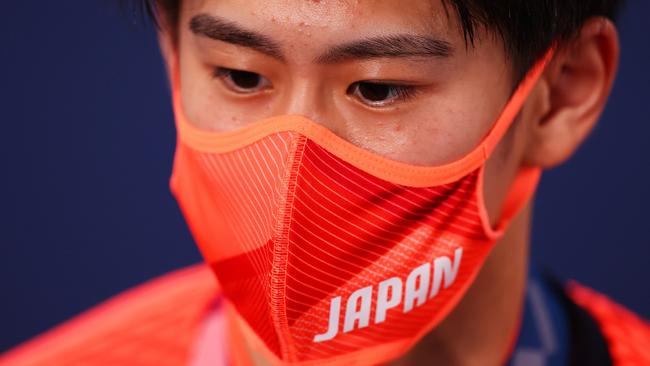
Sports Life
Don't miss out on the headlines from Sports Life. Followed categories will be added to My News.
Japanese teenager Daiki Hashimoto had no time for tears as he became the youngest ever men’s all-round Olympic gymnastics champion with a superb final horizontal bars routine at the Tokyo Games on Wednesday.
The nerveless 19-year-old edged out China’s Xiao Ruoteng with Russian world champion Nikita Nagornyy taking bronze, and kept dry-eyed on the podium despite the enormity of his accomplishment.
“Had I cried, I thought it would have been as if I were feeling satisfied with where I am now. I thought the champion must not cry but only look forward,” he said.
RELATED: Tokyo’s cringe-worthy Aussie culture clash
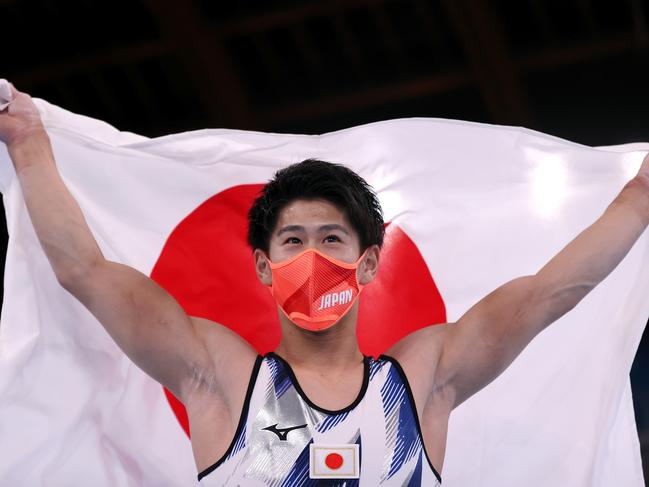
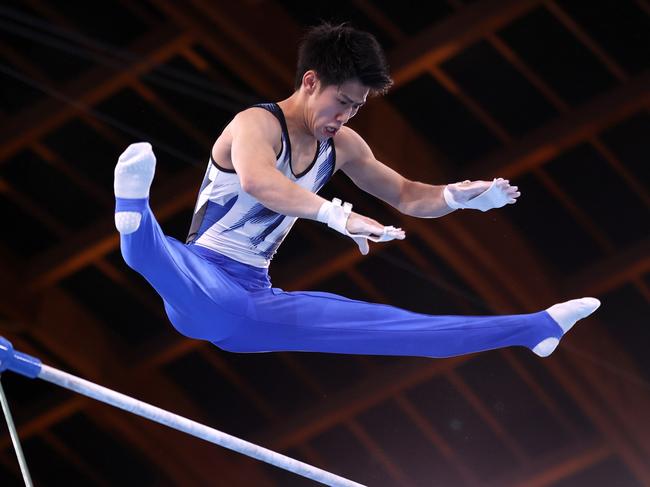
RELATED: Freakish sign of Aussie dominance
The boy from the Tokyo suburbs succeeds his illustrious compatriot Kohei Uchimura, the 2012 and 2016 all-round champion who chose not to go for a hat-trick after persistent shoulder injuries.
Placed third going into the final rotation, the horizontal bar, Hashimoto seized his moment, putting in a near-flawless routine, dismounting with a clap of his hands that sent a cloud of white chalk into the air.
Waiting for his score wearing a broad smile and the Japanese flag over his shoulders, Hashimoto rightly sensed he had done enough.
His 14.933 points lifted him to a total of 88.465, just 0.4 clear of Xiao on 88.065.
“If I performed without making mistakes, I thought I would surely win the gold medal.
“I wanted to show a performance that leaves an impression in people’s mind without thinking about the colour of the medal.
“I wobbled at the landing. So I am not satisfied. But in that big moment, I was able to finish. So that was big.” He said with gold secured – the host nation’s 13th of the Games – he had one important task to perform.
“First and foremost, I want to give it to my parents. I want to get it around their necks and thank them for supporting me.”
RELATED: Schedule for Day 6 of the Tokyo Olympics
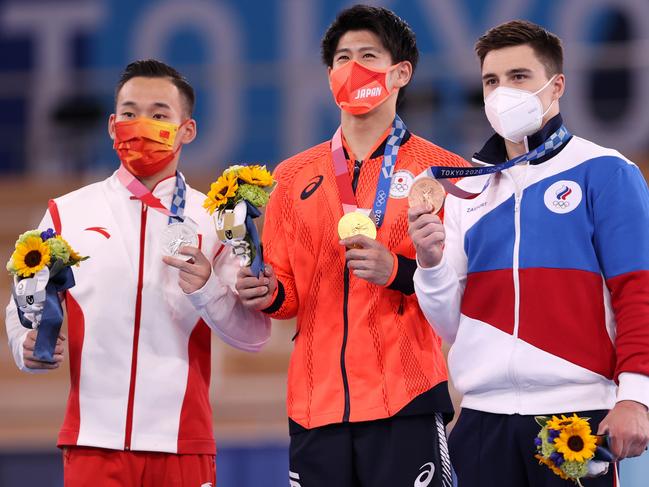
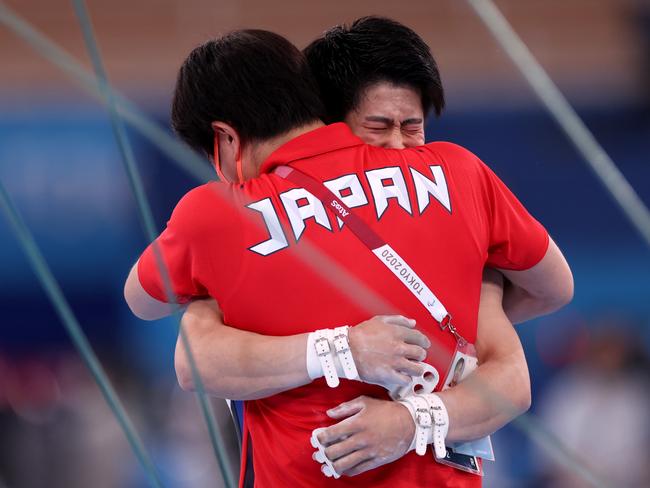
Simone Biles in the audience
After Japan took silver behind Nagornyy’s Russians in the team event on Monday, Hashimoto was determined to go one better at the Ariake Gymnastics Centre which 24 hours earlier had been the scene of Simone Biles’ dramatic withdrawal from the women’s team final.
Biles, who earlier also withdrew from Thursday’s all-round final, citing mental struggles, turned up with the silver-medal winning US women’s team to support their compatriots Sam Mikulak and Brody Malone.
While that duo finished out of the top 10 Biles was treated to a tense battle that went all the way to the wire.
Kohei’s Olympic reign is over but in Hashimoto he looks to have a worthy successor – a case of the king is dead, long live the king.
Hashimoto had defined his career objectives before the postponed Games begun as capturing all-round gold at the 2020, 2024 and 2028 Olympics.
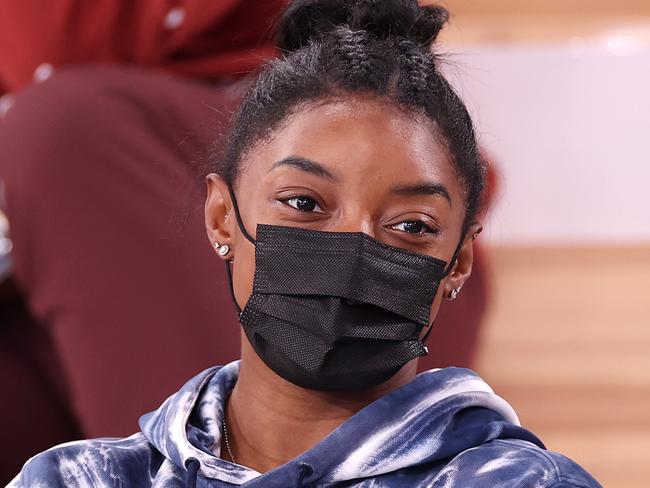
He achieved the first of those three in some style, having led the list of 24 qualifiers into the final.
With the first six from qualifying drawn in one group all eyes were on Nagornyy in the opening floor exercise to see whether he would perform his eponymous element, a triple pike he debuted at the European Championships.
The answer was no, the Russian world champion perhaps saving it for the apparatuses final.
Hashimoto led, and after the pommel horse pulled over half a point clear. But the next routine, the rings, shook up the top order, with Xiao edging compatriot Sun Wei and Nagornyy nipping ahead of Hashimoto.
“For the rings, there was an element that missed points. I became a bit flustered, but you never know what will happen in a competition. So I just put it behind me and focused on what’s next,” the Russian said.
The parallel bars were the competitors’ penultimate port of call, with Nagornyy posting the top score to go second from Hashimoto ahead of the concluding horizontal bar as less than half a point split the front three.
After Xiao and Nagornyy had done their stuff the spotlight turned to Hashimoto, who ended with a double-double layout dismount which drew appreciation from the sprinkling of supporters, and more importantly, the judges.
Originally published as Why Japanese teenager refused let himself cry after Olympic win


